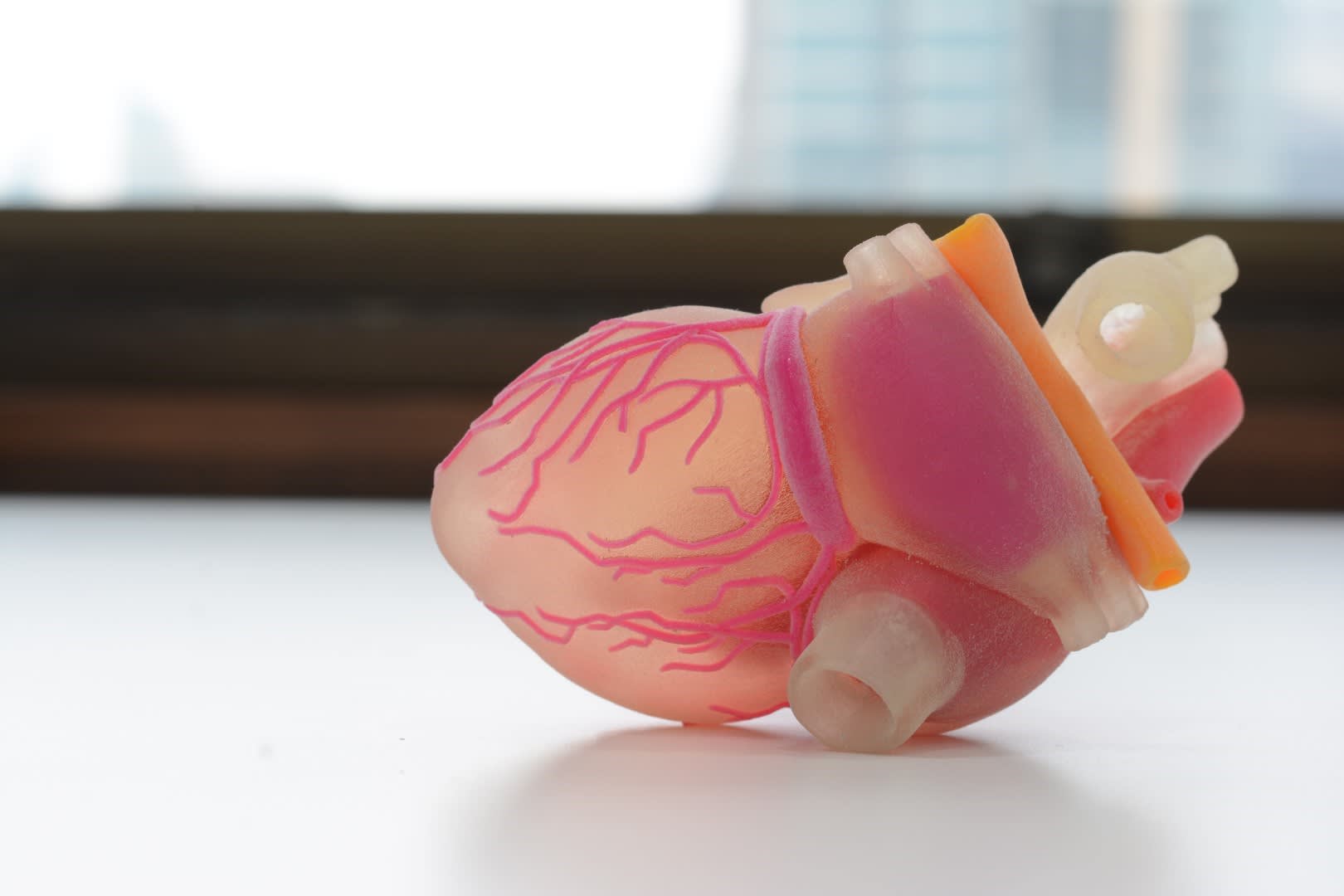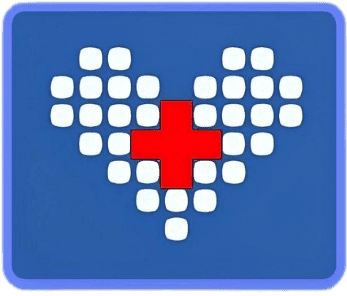10 Facts About Heart Health That Everyone Should Know

Posted on August 7th, 2024.
When we think about our heart, we often envision it as more than just a mere organ. Can you imagine your heart tirelessly working 24/7, ensuring vital blood flow throughout your body? Indeed, that's what your heart does, acting like a diligent gatekeeper, regulating the direction and flow of blood with remarkable precision.
Why does it matter so much, you ask? Because this intricate process is the foundation of your well-being, impacting everything from your energy levels to your overall health.
A healthy heart isn't just about avoiding disease; it's about maintaining the essential rhythm of life itself.
Understanding heart anatomy and function sheds light on why heart health is a cornerstone of a vibrant, thriving life. Isn't it fascinating to consider how these mechanics work harmoniously even as we carry on with our daily activities? You might be amazed to know that small, intentional steps can significantly influence your heart's health, enhancing the quality of your life and, ultimately, your longevity. Just like tending to a finely tuned machine, taking care of your heart requires consistent, thoughtful attention.
In this blog post, we will reveal 10 interesting facts about heart health that everyone should know.
Understanding Heart Anatomy
 When it comes to understanding heart anatomy, it's helpful to think of the heart as a robust but delicate machine working round the clock. Here are some interesting facts about your heart anatomy:
When it comes to understanding heart anatomy, it's helpful to think of the heart as a robust but delicate machine working round the clock. Here are some interesting facts about your heart anatomy:
1. Your Heart is a Synchronized Pumping Machine
At its core, the heart is comprised of four chambers: two atria on the top and two ventricles on the bottom. These chambers work in a synchronized manner to pump oxygen-rich blood throughout your body. The right side of the heart sends oxygen-poor blood to the lungs where it picks up oxygen, while the left side pumps this newly oxygenated blood to the rest of your body. It's a sophisticated system and underscores why keeping your heart in good shape is vital.
2. Your Heart Can Beat Around 100,000 Times a Day
Besides its chambers, the heart also features valves that ensure blood flows in a single direction. Valves act like gates that open and close with each heartbeat to prevent the backflow of blood. The heart's electrical system generates the impulses that direct when these gates open and close. This system is so efficient that your heart can beat around 100,000 times a day, all controlled by electrical signals. One of the more fascinating heart facts is that a heart can continue to beat even outside the body if provided with an adequate oxygen supply. Imagine that—your heart is so precise and dependable, it can work independently under the right conditions.
3. Structural Features Enable the Heart to Meet the Varying Demands for Blood Flow
Your heart is composed of complex, efficient features that work together to circulate blog two your body. Here's what it looks like:
- The heart is enveloped by a double-walled sac called the pericardium, which serves to shield and stabilize it within the chest cavity.
- The heart muscle itself, known as the myocardium, is designed to be incredibly strong, capable of enduring immense pressure to circulate blood efficiently.
- There is a big size difference between the atria and ventricles. The left ventricle has thicker walls compared to the other chambers because it has to pump blood to the whole body, whereas the right ventricle only pumps to the lungs. These structural features are vital because they enable the heart to meet the body's varying demands for blood flow.
Why Heart Health Is Crucial
The heart plays a pivotal role in nearly every function in our body. For instance, a healthy heart ensures that your organs receive an adequate supply of oxygenated blood, vital for their proper functioning. What happens when your heart isn't healthy? Risks of heart disease, stroke, and other cardiovascular conditions increase dramatically. Let's explore some interesting facts about heart health:
4. Heart Disease is the Leading Cause of Death in the US
According to the Centers for Disease Control and Prevention (CDC), heart disease remains the leading cause of death in the United States, accounting for about 1 in every 4 deaths. Isn't that alarming? Yet, many are unaware that simple lifestyle changes, such as eating a balanced diet and maintaining regular physical activity, can significantly mitigate these risks. The information about heart health available through reliable sources highlights the undisputed correlation between lifestyle choices and heart health outcomes—achieving a healthier heart can lead to a longer, more vibrant life.
5. Cardiovascular Health Reduces the Risk of Diabetes and Hypertension
Imagine your heart as an essential fuel pump for your body's vast network of arteries, veins, and capillaries. If this pump falters, every aspect of your health can be compromised. A robust heart contributes to elevated energy levels, sharper mental acuity, better hormonal balance, and even a stronger immune system. The American Heart Association notes that maintaining optimal cardiovascular health reduces the risk of various illnesses, including diabetes and hypertension.
6. Regular Heart Screenings Can Help Detect Potential Problems Before They Become Severe
Regular health screenings and check-ups can help detect potential problems before they become severe. Such proactive heart health support services are invaluable and should be a fundamental part of your healthcare routine. By integrating practical heart health information into your daily life, you safeguard not just your heart but your overall well-being.
7. Those With Good Cardiovascular Health Are Less Susceptible to Stress and Depression
Additionally, consider how a healthy heart impacts your emotional state and social life. Isn't it true that physical health often mirrors mental well-being? Studies have shown that those with good cardiovascular health are less susceptible to stress and depression. This symbiotic relationship between heart health and mental health means that taking care of your heart helps foster a more positive outlook on life.
Moreover, being in good physical health often encourages social interaction and enables you to engage in activities you love, from playing sports to simply enjoying a walk in the park. Living with a healthy heart isn't just about adding years to your life; it's about adding quality to those years.
Common Risk Factors for Heart Disease and Prevention
Let's delve into common risk factors for heart disease. Understanding these risk factors can empower you to make conscious decisions about your health.
 8. Diet Has a Huge Impact on Heart Health
8. Diet Has a Huge Impact on Heart Health
Consistently consuming high amounts of saturated fats, trans fats, cholesterol, and sodium can lead to hypertension, high cholesterol, and diabetes. A simple way to mitigate this risk is to prioritize a heart-healthy diet rich in fruits, vegetables, whole grains, and lean protein sources.
Consider the Mediterranean diet, which is heralded for its heart-friendly properties, emphasizing the consumption of healthy fats derived from nuts, seeds, and olive oil. By making these dietary shifts, you can significantly improve your cardiovascular outlook.
9. Physical Activity is Vital for Cardiovascular Health
Adequate physical activity keeps the cardiovascular system in top condition, strengthens the heart muscle, and aids in maintaining an ideal weight. Unfortunately, the modern, sedentary lifestyle has made physical inactivity a peril to heart health. But it’s absolutely manageable: start by incorporating at least 150 minutes of moderate-intensity aerobic exercise, such as brisk walking, into your weekly routine. Even simple changes like choosing stairs over elevators or parking further from your destination can contribute to heightened daily activity levels. Remember, consistency is key, and small steps can lead to significant long-term benefits.
10. Smoking and Excessive Alcohol Consumption Elevate the Risk of Heart Disease
Smoking and excessive alcohol consumption also considerably elevate your risk of heart disease. Tobacco smoke contains toxic chemicals that can damage the heart and blood vessels, leading to atherosclerosis and increased risk of heart attack. If you currently smoke, resources are available to assist with quitting—don't hesitate to seek professional guidance.
Similarly, while moderate drinking can have some heart benefits, excessive alcohol intake leads to high blood pressure, cardiomyopathy, and arrhythmias. Aim to limit your alcohol consumption to moderate levels: up to one drink per day for women and up to two drinks per day for men.
Related: 7 Reasons Why Heart Health Awareness Matters
Wrapping Up
The path to robust heart health is paved with informed decisions and consistent effort. It's essential to recognize that everyone has the power to make positive changes, regardless of current health status. That's where our heart health support services come into play.
The Ruth Lee Miller Heart Health Research Foundation is committed to providing you with up-to-date, research-backed education on heart health. Whether you’re curious about dietary recommendations or looking for physical activity guidelines, our resources are designed to equip you with the knowledge needed to take control of your cardiovascular well-being.
Through our comprehensive heart health educational programs, we aim to demystify heart health topics and empower you to make informed choices. We also offer local heart health screenings, designed to provide you with a clear picture of your cardiovascular health. These screenings offer a thorough examination of risk factors including blood pressure, cholesterol levels, and more, facilitating timely interventions.
Lastly, through our grant programs, we support community initiatives aimed at heart health improvement. By funding localized projects and research, we aim to foster environments where heart health can thrive. Imagine the collective impact of communities empowered with heart health knowledge and resources. Together, we can work towards a future where heart disease awareness and prevention become widespread.
Your participation matters; each one of us has a role to play in this heart health journey. Contact Us Now!
Should you have any questions or wish to schedule a screening, feel free to reach out at (314) 669-1445 or email us at [email protected].
Contact
Get in Touch
We're here to answer your questions, explore partnerships, and collaborate on heart health initiatives. Join us in our mission to empower healthier hearts, and together, we can make a real impact.

